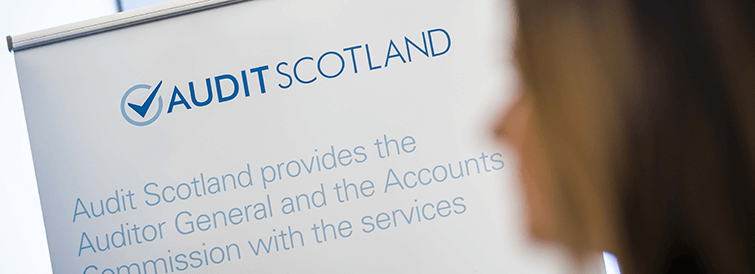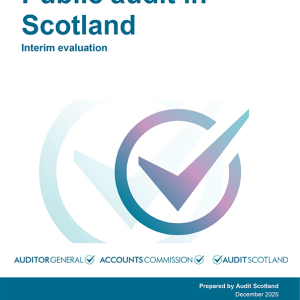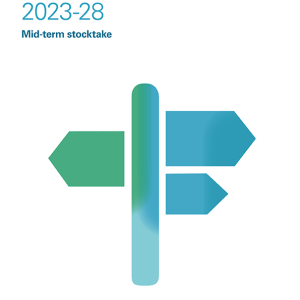What we do

To find out what work we are planning to do over the next year, see our work programme.
We report in a range of ways on the performance and finances of Scotland’s public bodies, and we use different methods to communicate our work and engage with our stakeholders. These are listed below.
Outputs from the annual audit
We audit over 200 public bodies and we publish various outputs from the annual audit process, including:

- The independent auditor’s report is issued on each set of accounts prepared by the audited body, to comply with statutory requirements and in accordance with International Standards on Auditing. These reports set out auditors’ opinions on the accounts, including whether the financial statements give a true and fair view, and that income and expenditure is lawful
- The annual audit report sets out the conclusions of the audit to the public body concerned, and to the Controller of Audit or the Auditor General. In line with our Code of Audit Practice, these reports also cover: financial management, financial sustainability, governance and transparency, and Best Value and value for money.

Overview reports
These reports assess the overall performance of key parts of the public sector, such as the NHS, local government and colleges.
They draw together key findings from all annual audit work in the relevant sector to summarise key opportunities and challenges. These reports are produced by either the Accounts Commission or the Auditor General.

Performance audit reports
These are national reports that focus on efficiency and effectiveness in the use of public resources.
They can consider issues such as: implementation of public service reforms; value for money; use of resources, and; service performance and sustainability. These reports are produced by either the Accounts Commission or the Auditor General, or jointly.

Best Value audit reports
These reports are produced by the Accounts Commission and consider how well councils are meeting the duty of Best Value placed on them under the Local Government in Scotland Act 2003.
This means the continuous improvement of the authority’s functions and how well it is maintaining a balance between the quality of its performance and how much this costs to deliver.

Statutory reports
These reports highlight significant issues found during the audit of a public body’s accounts.
In central government and health, Section 22 reports are presented to the Scottish Parliament’s Public Audit Committee by the Auditor General. In local government Section 102 reports are presented to the Accounts Commission by the Controller of Audit.

Briefings
These are shorter reports that pull together existing information to summarise key issues and future considerations across a range of topics.
They can also provide independent and objective evidence on the performance of a sector, policy area, service, project or programme. We sometimes use briefings to update on our previous work and signpost our intentions for future work.

Blogs
Our blogs are designed to ignite debate, raise awareness and support continuous improvement
We sometimes use blogs to update on our previous work and signpost our intentions for future work.

Housing benefit performance audit reports
These reports help councils to improve their benefit services, and also help to hold councils to account for any poorly performing or failing services. They are produced by the Accounts Commission.

The National Fraud Initiative in Scotland
This is a counter-fraud exercise led by Audit Scotland on behalf of the Accounts Commission, and overseen by the UK Cabinet Office for the UK as a whole.
It uses computerised techniques to compare information about individuals held by different public bodies across the UK, to detect fraud or error. The initiative reports its findings biennially.

Council performance reporting
The Accounts Commission has a statutory power to define what performance information councils must publish.
Other outputs and engagement
We also use a range of methods to communicate our audit work and practices, to engage our stakeholders and ensure our work is accessible and valuable to the people who use and provide public services in Scotland.

Evidence to wide range of parliamentary committees

Written parliamentary submissions

Accounts Commission meetings with councils to discuss report findings

Briefings to boards and audit committees of public bodies

Project scope flyers

Conferences, presentations, roundtable events - UK, international

Correspondence

Media briefings

Online and social media

International visitors
Shared statement of public audit’s value
The UK’s four public audit institutions have a shared statement on the purpose and value of public audit.
Grouped under Independence, Assurance and Confidence, the statement sets out what public audit aims to deliver on behalf of citizens and elected representatives, and how it supports good practice and improvement.
It has been developed and agreed by the Auditors General and chief operating officers of Audit Scotland, Audit Wales, the National Audit Office and the Northern Ireland Audit Office.
This sits alongside and complements Public audit in Scotland, the shared statement of purpose between the Auditor General for Scotland, the Accounts Commission and Audit Scotland.
Value of Public Audit
1. Independence
Public Audit provides legislatures and citizens with an independent and evidence-based assessment of how well governments are spending public money. An effective, independent Public Auditor is an essential part of a healthy democracy.
2. Assurance
Through annual financial audits and value for money audits, it provides assurance to taxpayers and their elected representatives that public money is properly accounted for, used for the purposes intended and delivering positive outcomes for citizens and service users.
3. Confidence
The scrutiny arising from public audit supports trust and confidence in the use of public money by promoting good governance, accountability and improvement.






